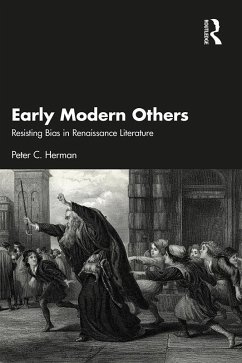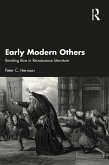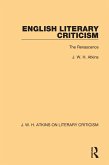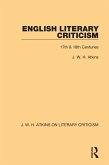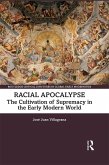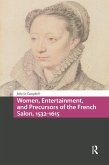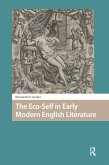By examining the works of Thomas More, William Shakespeare, Christopher Marlowe, John Fletcher, and Philip Massinger amongst others, Herman reveals that for every "-ism" in early modern English culture there was an "anti-ism" pushing back against it. The book investigates "others" in early modern literature through indigenous communities, women, religion, people of color, and class.
This innovative book shows that the early modern period was as complicated and as contradictory as the world today. It will offer valuable insight for anyone studying early modern literature and culture, as well as social justice and intersectionality.
Dieser Download kann aus rechtlichen Gründen nur mit Rechnungsadresse in A, B, BG, CY, CZ, D, DK, EW, E, FIN, F, GR, HR, H, IRL, I, LT, L, LR, M, NL, PL, P, R, S, SLO, SK ausgeliefert werden.
-Bethan Davies, The Spenser Review
[T]his is a valuable and timely work, one that offers a perspective on early modern literature and society rarely discussed'.
-Patrick J. McGrath, Milton Quarterly

